Supermax shareholders should not worry - Koon Yew Yin
Koon Yew Yin
Publish date: Sat, 15 Aug 2020, 04:55 PM
A few senseless commentators in i3investors were laughing at my buying so many Supermax shares recently. This has prompted me to write this piece.
As shown by the price chart below, the price plunged from Rm 24.30 on 11 Aug to Rm 17.92 on 14 Aug, a drop of Rm 6.38 in 4 trading days. It has plunged 26.3% in 4 trading days. This unprecedented crash shocked all investors.
As a result, many people called me to express their concern. Mr Ooi Teik Bee ranged me last night to seek my opinion. We are also wondering why all the glove stocks should be dropping so rapidly in tandem in the last few days. In most cases, one stock might drop but the other might go up instead. It looks like all the Investment Banks ganged up to push the glove share prices down so that they can continue to collect at cheaper prices.
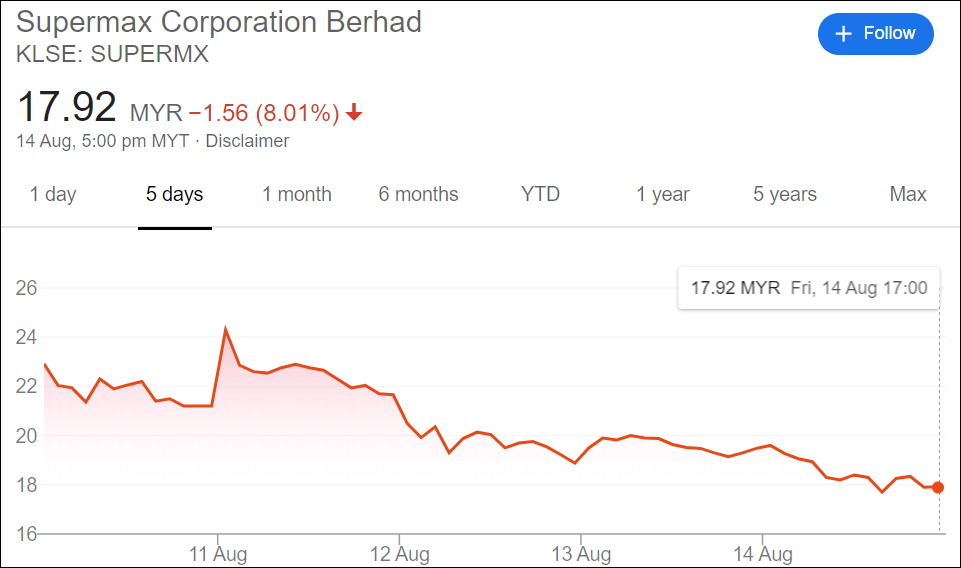
Covid 19 pandemic is affecting everybody and all the listed companies with the exception of glove stocks and other medical products for the prevention of the virus. There are 1,100 listed companies in Malaysia. All the listed shares with the exception of glove and medical products have been dropping continuously due to the pandemic. Until the pandemic is under control, the demand for gloves will continue to exceeds supply and all the glove makers can easily increase their selling prices to make more and more profit.
All the Investment Banks have to cut loss to sell all their holdings to buy glove stocks.
My advice:
As I said many a time, any stock cannot go up or come down continuously for whatever reason. After sometime it will change its trend. In this case, the price correction is too severe to frighten all the sensitive investors. Investors must realise that Supermax has shot up more than 1,000 % in the last few months. So, this price correction should be considered that the company has no more profit growth.
Supermax just announced that the company made a record quarterly profit in the history of the company. It will continue to make more and more profit as long as the pandemic is not under control.
All investors must look at the future of the company. It will give shareholder 1 bonus share for every 1 share held by shareholders and after the bonus issue, it will give shareholder 1 bonus share for every 45 shares held by shareholders.
I am sure this article will alleviate investors’ worry.
Related Stocks
| Chart | Stock Name | Last | Change | Volume |
|---|
More articles on Koon Yew Yin's Blog
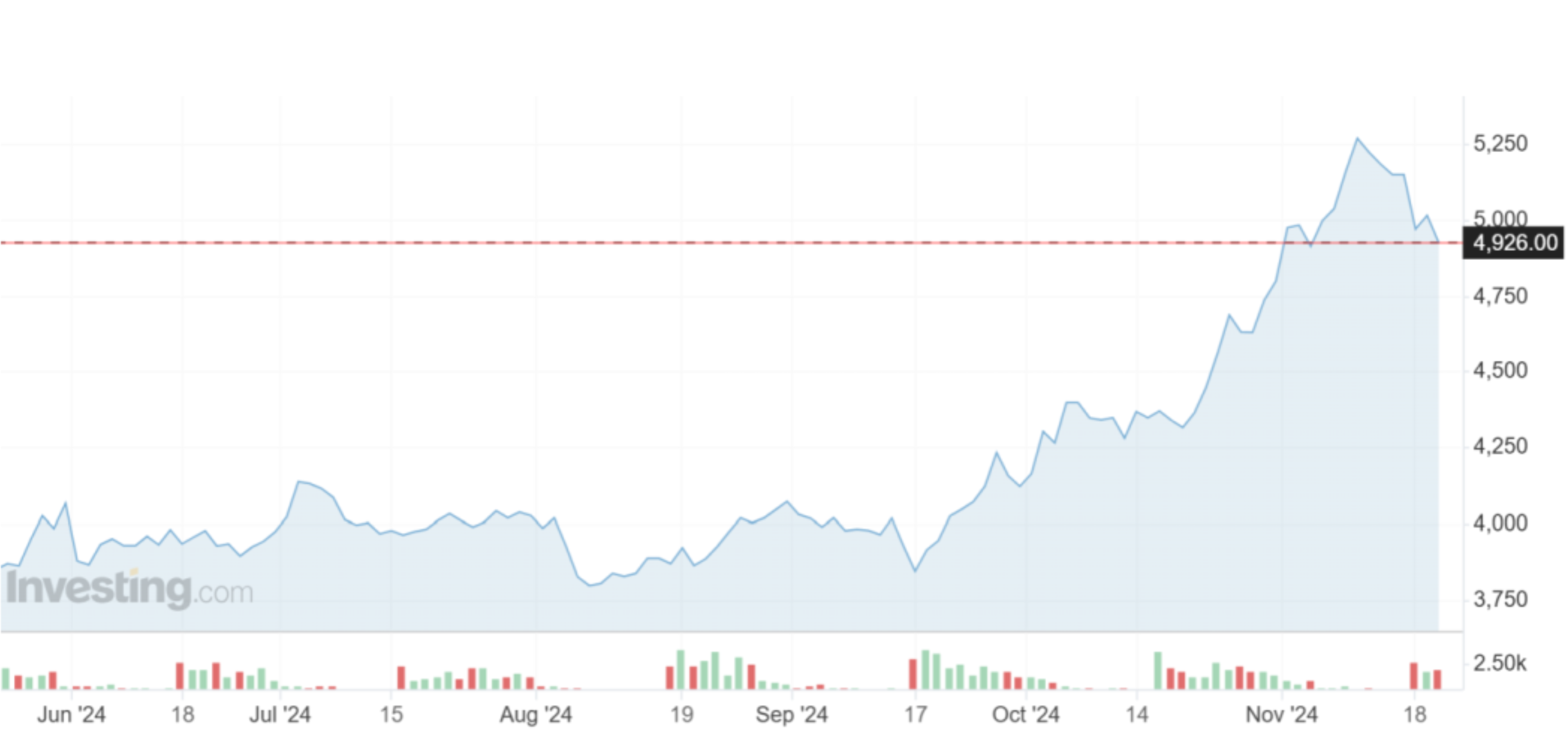
Created by Koon Yew Yin | Nov 22, 2024
All plantation companies are reporting better profit for the quarter ending September when CPO price was about RM 3,800 per ton.
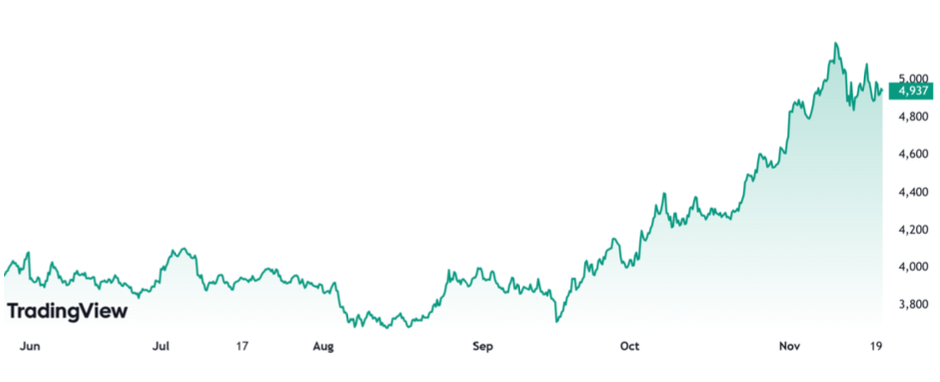
Created by Koon Yew Yin | Nov 21, 2024
Indonesia is the biggest palm oil producer in the world. Indonesia plans to implement biodiesel with a mandatory 40% blend of palm oil-based fuel from Jan. 1 next year, a senior energy ministry offici
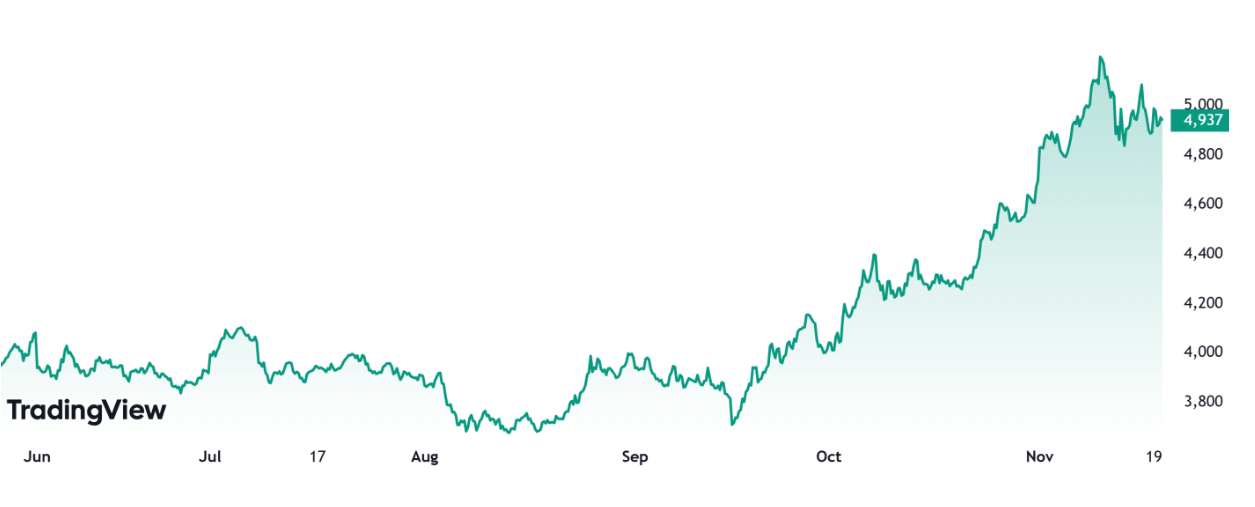
Created by Koon Yew Yin | Nov 20, 2024
Indonesia plans to implement biodiesel with a mandatory 40% blend of palm oil-based fuel from Jan. 1 next year, a senior energy ministry official said recently, lifting prices of the vegetable oil...

Created by Koon Yew Yin | Oct 30, 2024
Latest poll on 30th Oct 2024
Created by Koon Yew Yin | Oct 30, 2024
Latest poll on 30th Oct 2024
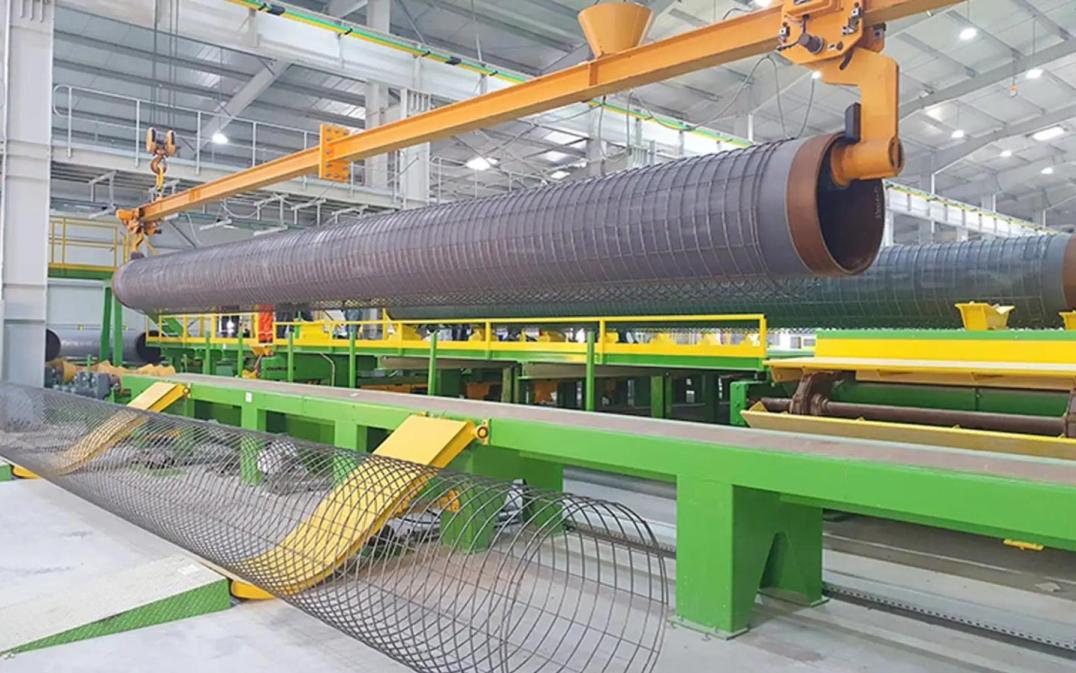
Created by Koon Yew Yin | Oct 25, 2024
The group is expected to deliver better profits and revenue from its pipe coating, engineering, and bioenergy segments.

Created by Koon Yew Yin | Oct 14, 2024
Today I read the article by Murray Hunter titled “A Visit to the Malaysian Communist Party tunnels in Betong, Thailand”, which is an important part of Malaysia’s history.

Created by Koon Yew Yin | Oct 04, 2024
KSL is still the cheapest based on a 4.4 PE ratio, which means its share price should continue to go up. Unfortunately, there are a few small investors who always queue to sell at cheaper prices...
Created by Koon Yew Yin | Oct 04, 2024
KSL is still the cheapest based on a 4.4 PE ratio, which means its share price should continue to go up. Unfortunately, there are a few small investors who always queue to sell at cheaper prices...
Created by Koon Yew Yin | Sep 06, 2024
Water pollution is a huge challenge for freshwater in the UK, impacting our rivers, streams, and lakes and the wildlife that call them home.





















